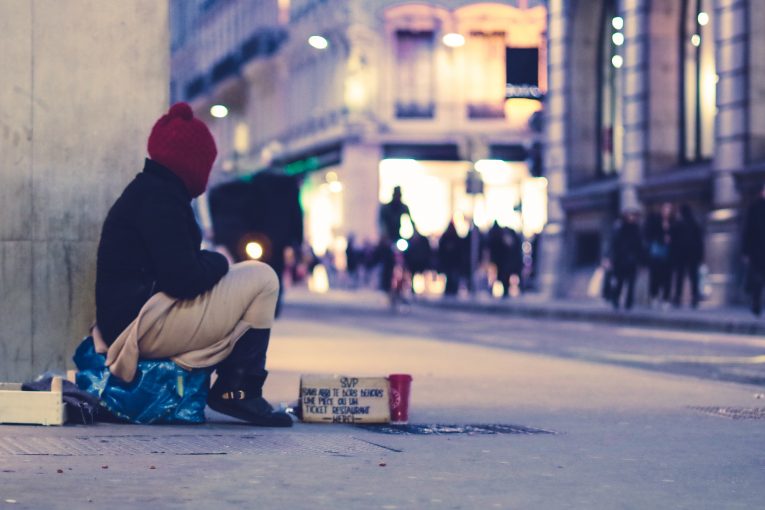
By David M. Greenwald
Executive Editor
In the last decade in California homelessness has gone from a problem to a crisis. Most experts on homelessness understand that the solution to homelessness is permanent supportive housing. And as we learned from the UCSF homelessness study, we need to do a better job of supporting people who move from housing insecurity to homelessness.
I understand people’s concerns about homeless encampments—the visual blight, the mess, the unsanitary conditions.
I was reminded of just how dangerous this could be when driving to the office early in the morning last week, when I saw homeless people with a campfire in a shelter behind a building that used to be Woodstock’s. The campfire was right by the gas intake. A potentially dangerous situation for the businesses, not to mention the people.
I understand the frustration of the governor and local officials, many of whom well understand that the homelessness crisis is a confluence of several massive problems—not just housing, but also substance use disorder, mental illness, and the lack of  resources to address these deep societal problems.
resources to address these deep societal problems.
At the same time, I remain disappointed that the governor and other others—who should know better—are seeking a remedy that will make our problems worse, not better.
Homeless and legal experts have pushed back pretty hard. The latest being UC Berkeley Law Professor Jeffrey Selbin in a CalMatters op-ed.
Selbin notes that the case that the Supreme Court will decide— City of Grants Pass v. Johnson —appears relatively straightforward.
“Does the enforcement of generally applicable laws regulating camping on public property constitute cruel and unusual punishment prohibited by the Eighth Amendment?”
The problem with the straightforward approach is that the current law does not prevent local officials from addressing homeless encampments.
Instead, in 2018, “the Ninth Circuit Court of Appeals ruled in Martin v. Boise that punishing homeless people for sleeping outside in the absence of available shelter beds constituted cruel and unusual punishment. “
That ruling should make sense. After all, every human being has the right to exist and they have to live somewhere. You can’t make it illegal to live on the streets if you don’t give them an alternative.
Is the plan really to turn jail cells into de facto homeless shelters? Or is the plan to force homeless people to constantly move from place to place?
As Berkeley Law Dean Erwin Chemerinsky pointed out last week in the LA Times, “There is every reason to fear that the conservative justices will allow governments to criminalize sleeping in public spaces even if people have nowhere else to go.”
Selbin adds a note of warning: “The Supreme Court has gone out of its way to take Grants Pass, which does not bode well for the protections afforded by the Eighth Amendment or the basic rights and wellbeing of homeless people.”
What also bodes poorly for this cause is the dissent last week by a Ninth Circuit Trump appointee in a San Francisco case.
In his dissent, Judge Bumatay stated that “nothing in the text, history, and tradition of the Eighth Amendment’s Cruel and Unusual Punishments Clause comes close to prohibiting enforcement of commonplace anti-vagrancy laws, like laws against sleeping on sidewalks and in parks.”
He argued that the broad injunction by the court “falls starkly outside the original meaning of the Cruel and Unusual Punishments Clause, disregards the long history of anti-vagrancy laws, and broadly expands Martin and Grants Pass.”
Selbin notes that, for over a century, the court “has held that the Eighth Amendment “may acquire wider meaning as public opinion becomes enlightened by humane justice.”
A 1958 case argued the law “must draw its meaning from the evolving standards of decency that mark the progress of a maturing society,” which became settled doctrine.
But that’s not where this is heading.
Instead, you have supposedly liberal politicians—Governor Newsom, SF Mayor London Breed, SF City Attorney and former Democratic Assemblymember David Chiu—siding with the conservative Trump appointees on the courts.
As Selbin puts it, “Newsom and others have sided with this cramped view of the Constitution because they say the courts have tied their hands, but this is disingenuous.”
He charges, “The governor and city attorneys are explicitly asking the Supreme Court to permit them to use criminal and civil penalties to punish people because of a collective government failure to provide affordable housing and adequate shelter across the state.”
Moreover, he argues, “Critiques of Martin and Grants Pass are also shortsighted. Studies are clear that enforcing these kinds of laws perpetuate homelessness and impose substantial health and material harms on unhoused people.”
None of this is going to solve the homeless problem.
All of this is going to effectively criminalize the homeless and not provide the kinds of support needed to lift people out of their rough spots in lives.
Selbin concludes that “officials across California should not return to criminalizing homelessness or use inhumane shelter options like sweltering asphalt as a cover for failed policies.”



So what did you do about it?
I let the police department know about it and it was addressed.
I read about ten pages of the brief and gave up. I don’t see what the end game is here.
Do you assume that all unhoused people will accept shelter on the terms that it’s offered?
Do municipalities have the resources to provide shelter for an undetermined number of people at any given time?
I read and think I understand the concerns of homeless advocates, but I don’t see what practical policies you’re advocating that could be implemented using existing resources. The governor and Mayor Breed are dealing with real-world problems and seemingly don’t want to have their options constrained.